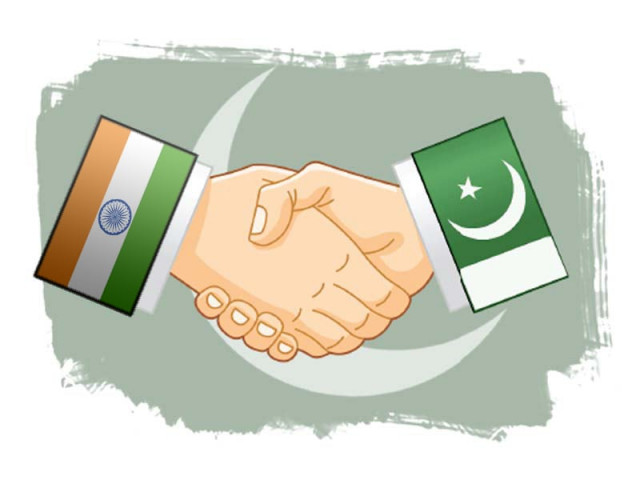‘Will India and Pakistan move on if their economic interests match’
Two-day conference on ‘Stabilising South Asia’ at IoBM ended on Wednesday.

‘Will India and Pakistan move on if their economic interests match’
Asif Khan, who is the director of research and development at the Federation of Pakistan Chambers of Commerce and Industry, was one of the speakers at the second day of the conference which began on Tuesday.
According to him, “Fear of disruption in trading interests constraints potential conflict [between countries]”. Quoting the example of the impact that trade between Germany and France had on stabilising Europe after the Second World War, he proposed that “India and Pakistan could traverse a similar trajectory towards improving political relations without necessarily having to compromise on strategic and political interests”.
Khan pointed out that Pakistan and India are two major economies of South Asia and contribute around 80 per cent of the combined gross domestic product of the eight countries in the South Asian Association for Regional Cooperation.
“Trade between the two countries, however, is a low $2.6 billion, and is far below the potential of up to $10 billion identified by many experts,” he said.
Khan also mentioned that transport via road cost one-third of that through sea routes and was the best method for freight transport. He mentioned that the two countries should include more items in the list of goods that can be traded. Currently, only 137 items can enter Pakistan through Wagah border, but the list comes down to a mere 47 in number if three broad categories of fruits, vegetables and meat are defined.
He proposed that the railway route between Sindh and India should also be opened for transport. IoBM’s research director Dr Shahida Wizarat, who was hosting the conference, told The Express Tribune that relations between two countries have not improved because a number of issues, including Kashmir, have yet to be resolved.
Prof Luqman Saeed and Shabib Haider Syed from Lahore’s Forman Christian College also spoke at the conference. They presented their analysis on terrorism in the region over the last three decades. Irtaza Hasan and Shahbaz Khan of MOL Pakistan, a Hungary-based oil and gas company, spoke about how Pakistan’s crude oil reserves of 27 billion barrels could be exploited and the country can achieve self-reliance in crude oil. A professor of South Asian History at IoBM, Dr Maria Robotka, spoke about the impact of the political turmoil in Pakistan across South Asia.
Published in The Express Tribune, December 20th, 2012.


















COMMENTS
Comments are moderated and generally will be posted if they are on-topic and not abusive.
For more information, please see our Comments FAQ